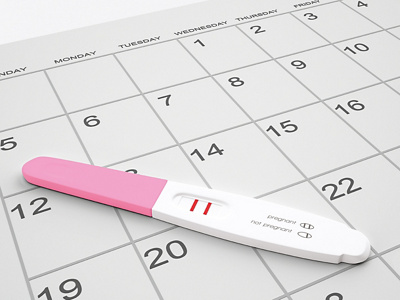The purpose of the initial pregnancy check-up with your gynaecologist is to exclude any possible health risks related to your pregnancy. This includes an ectopic pregnancy, for instance. The doctor will carry out a pap smear test, determine your blood type and work out whether you have antibodies against diseases like rubella and toxoplasmosis.
In the following monthly check-ups they will check your weight, blood pressure, the haemoglobin level in your blood, the size of your uterus (fundal height), the child’s heart rate and later on the position of the child. Urine samples are taken regularly and sometimes your gynaecologist will also check your cervix.
The doctor will carry out ultrasound examinations to check your baby’s developmental progress. Initially this involves measuring the crown-rump length. Later on in the pregnancy, progress is determined by measuring the diameter of the baby’s head. Between the 10th and 14th weeks of pregnancy, the doctor will also use ultrasound to measure the fold of skin on the baby’s neck. This helps to determine whether the baby has Down syndrome (trisomy 21).
The child’s sex can generally be determined from the 20th week of pregnancy onwards, as long as it is lying in the proper position and its genitals are visible.
Non-invasive tests
Recently various non-invasive prenatal tests (NIPT) have also been officially approved. If the results of the first trimester test are unusual, a simple blood sample can be taken (maternal serum screening) in around the 11th week and these new prenatal tests can be used to make a reliable diagnosis about the most common chromosomal abnormalities.




